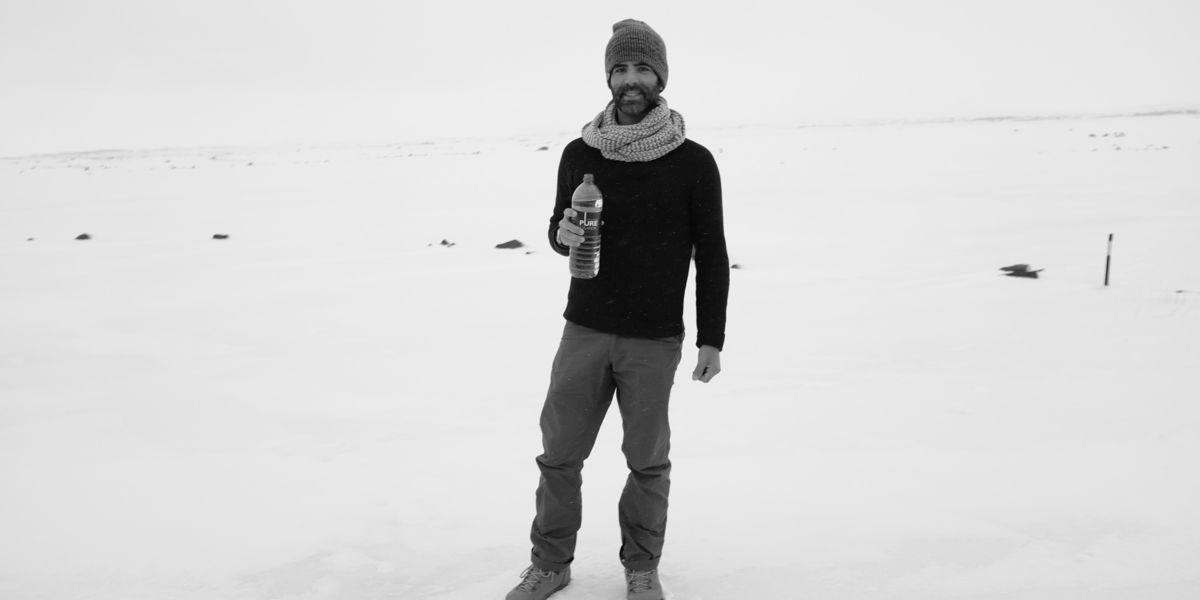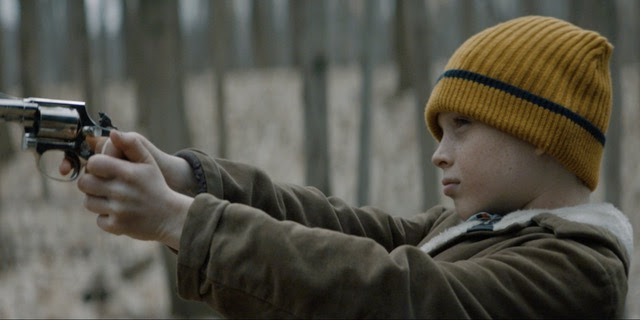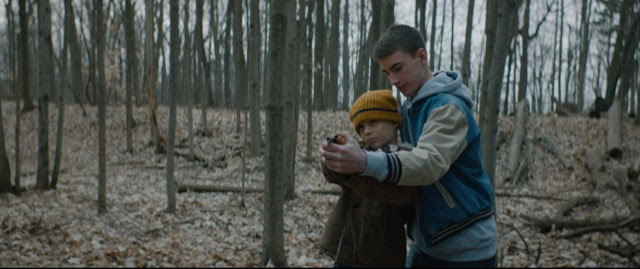From ‘Close Up Culture’
Luis Gerard’s latest short film, The Wake, has qualified to be considered for the 96th Academy Awards. This timely short shares the story of a young deaf boy Martin (played by Zander Colbeck-Bhola) who looks up to his older brother (played by Emmy Award winner Isaac Kragten) and follows him, even at times when he shouldn’t.

Luis Gerard
Where did you get the idea for The Wake?
In 2017, I came up with an idea for a feature revolving around two brothers who lived in a funeral home in a small town in the US and robbed the houses of the dead during the deceased’s funeral. I never intended to make it a short film. I planned to write a small indie feature, but the day I started the script, I came up with very different ideas and ended up with a 20-page short film instead– ironically, a big short rather than a small feature film.
However, I didn’t think I would ever shoot The Wake as a short film. I felt at some point I would turn that script into a feature, but a couple of years later, the opportunity to shoot a short film in Canada came along, and I pulled THE WAKE from the drawer, and that’s the script we shot.
How important do you feel it is to represent people from the deaf community?
I think representing the deaf community, and all communities is essential. You give them a chance to be seen on screen and their stories to be told. It’s a great way to educate the young that the world is much bigger than they think. For decades, films revolved around white people; in some cases, white actors played Native Americans, Asians, blacks, or Hispanics with make-up. Thankfully, we don’t, which we don’t see anymore. I wrote “THE WAKE” a few years before movies like “Sound of Metal” and “CODA” weren’t released. I remember thinking I was writing something fresh by having one of my leads come from the deaf community. Fortunately, things have changed, and inclusion and diversity are no longer that unusual.

Were any of the characters based on people you know now or from your childhood?
Initially, I didn’t think the story or its characters were inspired by people I knew. However, in the editing room, I began recognizing where some of my ideas came from. That’s when I realized how personal the film was. I wrote the script in a day, and I didn’t touch it for almost three years, so I didn’t process what I had written, but there are friends and family all over the film, including myself. That’s the thing I love about the magic that comes from writing or creating something, especially when it just comes subconsciously.
What was the most challenging aspect of writing this story?
Writing “THE WAKE” wasn’t particularly challenging; I completed the script in a day.
However, shooting the film was the real challenge. I juggled many responsibilities as a writer, producer, director, and primary investor. Despite having a fantastic crew, it was my first time collaborating with many of them since I shot the film and I shot in another country, which added an extra layer of complexity to the production. It’s no secret that working with kids can be challenging, especially when they are so young and without experience, but I will always treasure the experience and everything I learned by working with a deaf child. I grew as a director and person.
Gun crime is a huge issue in America, was this a big part of why you wrote the story?
Indeed. One of the themes explored in “THE WAKE” is the fascination with guns in the U.S., especially how kids perceive them in our country. We’re exposed to guns from a very early age, whether with toys, video games, movies, or within our own homes, and children are inevitably influenced and sometimes wowed by them. While gun issues exist in other countries, it is no news that America faces a severe problem. When I wrote the script, I remember reading a news article about how there was an average of one mass shooting per day that particular year, which I couldn’t believe. I guess I had become so desensitized by the problem that it surprised me. So, I wanted to make it a part of my story without making it strictly about it because I was exposed to guns as a child, which added a personal dimension to my film.

What can you tell us about your life before you became a filmmaker?
I grew up very close to the movies. My father loved movies and was quite passionate about them. He was an architect, but his passion was film; he had an art-house movie theater, he was a film critic, and he founded two film festivals, all on the side. Later, he also directed a movie with Gael Garcia Bernal and Harvey Keitel, so movies were very much a part of my DNA. However, during my school years, I was actively involved in sports, and I explored my passion for music as a DJ. In my senior year in high school, I opted not to study film because I didn’t consider it a realistic career path. Growing up in Puerto Rico, we did not have a film industry, and I didn’t know any successful filmmakers then. On the other hand, there weren’t many Hispanics making a name in Hollywood, so I opted to study something else. But in college, a close friend who knew I loved movies suggested we should make a short film; the rest is history.
What can we see next from you?
I am currently working on multiple film projects while still working on commercials. One of the projects is a studio film produced by Todd Lieberman and Alex Young, scheduled for production next year. I also wrote a script titled “Where Only the Devil’s Dare,” which I am pretty passionate about, and it’s been getting some interest from a few producers.
Additionally, I am attached to direct a movie called “Phobos” with Liberty Films, produced by Stuart Fenegan and Duncan Jones. We’ll see which comes to fruition first.
How did you feel when you heard that the film had qualified for an Oscar?
I am very excited. But more importantly, I am happy the film has played at many film festivals. It was a hard film to make, so I want people to see it, regardless of what they think about it. I won’t lie. If the film gets shortlisted or even nominated, it would be fantastic, a dream, but it’s not something I’m expecting. Hopefully, it was a learning tool and will help me make a better one when I get the opportunity.

